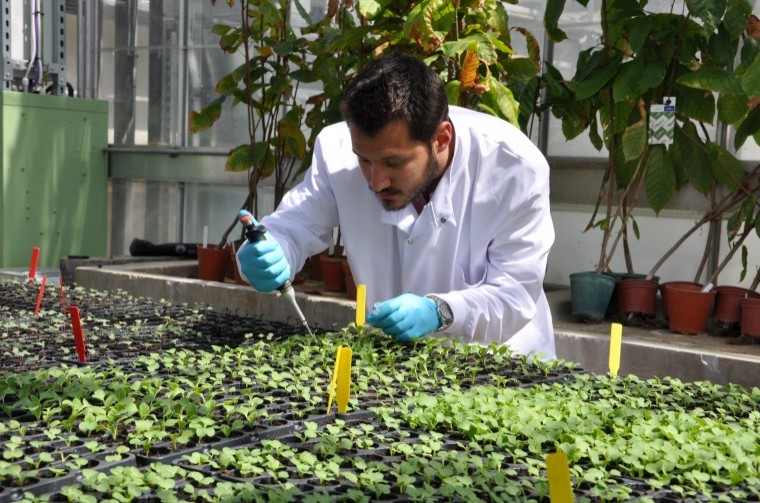Based at Reading University, the eyeSpot research project is trying to find a radical alternative for growers faced with a loss of traditional herbicides to control weeds in their field vegetables because of European Union legislation.
If the project succeeds, it will drastically reduce chemical use by using an engineering solution rather than chemistry or genetically modified plants. The aim is to apply no chemical to the soil or the crop, but instead use robotics to apply a non selective, systemic herbicide to the leaves of weeds. This should prevent herbicide drift and reduce run off to the soil, crop and non target organisms.
The project is part funded by AHDB Horticulture, and experts at Reading University, Precision Farming Robotics Ltd, Concurrent Solutions LLC and Knight Farm Machinery Ltd are developing the use of an automated spot herbicide ejector, which will “point and shoot” metered droplets to individual leaves of weeds. The ejector will use an innovative imaging system to distinguish weeds in field vegetable crops and will evaluate the dose of droplets required to kill weeds at different growth stages. Herbicide droplets will then be accurately targeted to the leaves of weeds.
Once commercialised, the system could reduce, by up to 95%, herbicide inputs per unit land area. Growers should find that labour and energy requirements are significantly lower than for mechanical weed control.
Additionally, the approach aims to address environmental issues by cutting energy inputs and soil moisture loss by reducing the need for mechanical weed control.
Field trials with savoy cabbages took place in summer 2016. For proof of concept, manually applied droplets of glyphosate achieved 92% weed control and significantly higher yields than the conventionally applied pre emergence herbicide, pendimethalin. Most importantly, yields were not significantly lower than those in hand weeded trial areas and amounts of herbicide applied per unit land area (equivalent to 83 grams of glyphosate per hectare) were 94% lower than for the pendimethalin.
Commenting on the findings so far, Dr Alistair Murdoch, who is leading the research project at Reading University, said, “This is a pioneering project, as we are exploring a combined engineering and chemical solution to weed control in field vegetables. By accurately targeting leaf specific droplet applications, it is the ultimate in precision agriculture. The importance of the successful findings of the project cannot be over stressed and it is, therefore, particularly important that systemic, broad spectrum active ingredients such as glyphosate remain available to farmers and growers.”
An automated vision guided droplet applicator should be ready for preliminary field trials in 2018.
Pictured: PhD student Nikos Koukiasas working on designing precision droplet application equipment




